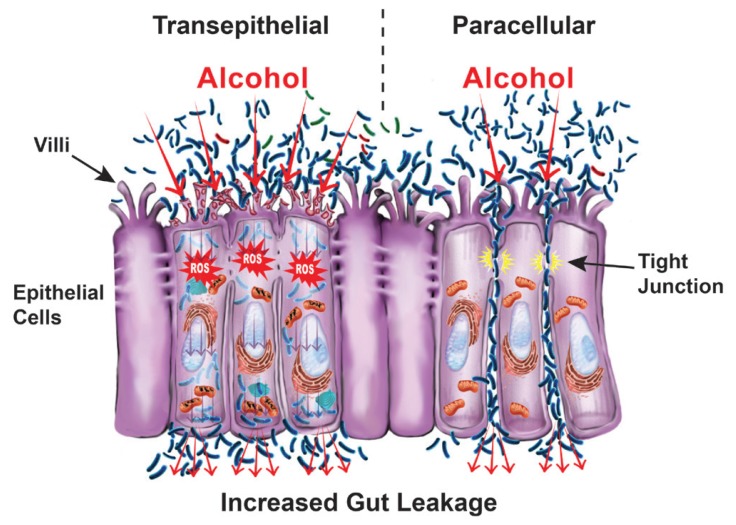Figure.
The intestinal barrier regulates the passage of materials, including microbial products, between the inside of the intestine (where food and drink go) and the cells and blood vessels on the other side of the epithelial cell layer lining the inside of the intestine. Alcohol disrupts the intestinal barrier, increasing its permeability, in two ways: via transepithelial mechanisms (cells on the left), which allow material to pass directly through the epithelial cells, and paracellular mechanisms (cells on the right), which allow material to pass through the junctions between the epithelial cells. Alcohol and its metabolites trigger transepithelial mechanisms by damaging the cells directly and weakening cell membranes via several mechanisms including oxidative stress caused by reactive oxygen species (ROS). Alcohol’s metabolites trigger paracellular mechanisms by disrupting the proteins that create the tight junctions linking cells and proteins that stabilize cells’ cytoskeletons. Increased permeability of the intestinal barrier allows bacteria and the toxins they create to leave the gut and infiltrate other organs through the bloodstream.

